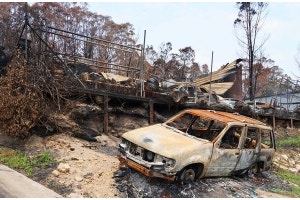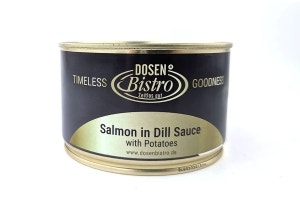
The concept of an economic collapse may feel distant to us Australians, but history and global events show us that no economy is entirely immune. Whether it happens gradually or suddenly, an economic downturn can disrupt every aspect of daily life, including access to food, medical care, utilities, housing, and employment. Preparing for such an event need not mean panic—it means taking practical, proactive steps to ensure you and your family are ready to face the challenges of economic instability.
Australia’s economy has been strong for decades, buoyed by its resources and trade relationships, but global interdependencies, inflationary pressures, and domestic vulnerabilities should indicate the value of preparation. Prepping for economic uncertainty isn’t just for doomsday scenarios—it’s a safeguard for everyday life, enabling you to manage rising costs, supply chain issues, and employment challenges with resilience and confidence.
This guide explores the vulnerabilities of Australia’s economy and offers actionable advice on building financial, food, and community resilience. By securing essentials and learning adaptable skills, you’ll be better equipped to face economic instability, however it manifests.
To further enhance your skills and have valuable references at your fingertips, we recommend exploring these resources:
- Bushcraft & Survival Educational Books
- Medical Books & Videos
- Prepping & Emergency Response
- Australian Medicinal & Bush Tucker
- Self-Defence
- Hunting
- Cook Books & Recipies
- Other Resources
Understanding Australia’s Economic Vulnerabilities
Global Market Dependencies
Australia's economy is deeply integrated into the global market, particularly through trade with key partners like China, the United States, and Japan. Any downturns, policy shifts, or geopolitical tensions affecting these markets could ripple through Australia's economy, triggering higher prices, job losses, and reduced access to goods.
Recent international trade disputes and global conflicts emphasize how quickly foreign influences can impact domestic life. For instance, the Middle Eastern conflicts have recently caused disruptions to shipping routes and changes in import/export regulations which can drive up costs on essentials like food, fuel, and medications.
The cost of Sea and Air freight with the extended passage times has increased significantly, all of which will end up as inflationary to imported goods. Preparing now provides a buffer against such shocks, ensuring you have the supplies and skills to manage these disruptions.
Cost of Living and Inflation
In Australia, inflation has been steadily increasing, putting pressure on households. From skyrocketing rents and rising grocery prices to climbing utility bills, Australians are finding it harder to make ends meet. Inflation erodes purchasing power, leaving families with less disposable income to save or invest. Added to which the cost of borrowing and rolling over debt has also increased.
By saving cash reserves, learning self-reliant skills like gardening, and cutting down on unnecessary spending, you can cushion the effects of inflation. Even small steps, like growing your own vegetables or reducing energy consumption, can make a significant difference over time.
Disasters and Supply Chain Threats
Natural disasters such as bushfires, floods, and droughts are a regular occurrence in Australia, often causing widespread disruption to supply chains. Even short-term disasters can lead to scarcity, price inflation, and temporary shortages of critical goods.
A well-stocked pantry and emergency supplies can mitigate these risks. Having a buffer of essential items like food, water, and medications ensures that you’re not left scrambling during a crisis. Additionally, understanding how to adapt your lifestyle to these disruptions—such as learning water conservation techniques or sourcing local produce—can increase your resilience.
Automation, Artificial Intelligence (AI) and Job Scarcity
Technological advancements and automation are transforming industries across the globe, and Australia is no exception. As machines replace human labour in fields like manufacturing, retail, and transportation, traditional job opportunities are dwindling, and expect this to accelerate in the years to come. AI is already carving up the professions, and even small businesses are dispensing with some human resources as AI in the form of ChatGPT and other tools are simple to use, and are extremely cost effective. Economic downturns often accelerate these trends, which may leave many workers displaced.
To prepare, focus on developing practical, in-demand skills that will remain valuable regardless of economic conditions. Skills such as cooking, gardening, repair work, and first aid are not only useful in day-to-day life but also indispensable in times of crisis.
Financial Resilience: Securing Your Wealth
Precious Metals and Gems
During economic turmoil, traditional currencies often lose value. Precious metals like gold and silver have historically served as reliable stores of wealth.
- Gold and Silver: Gold is a proven hedge against inflation and economic instability. Silver, often called "poor man’s gold," is more affordable and practical for smaller transactions. Avoid "paper gold" certificates, which are tied to the financial system, and instead invest in physical bullion like coins or bars.
Gold has risen from $570/Oz in 2000 to $4000/Oz in Australia – 600% increase, and average 8% increase every year, while Silver has risen from $8.00/Oz to $47.00 in the same time a 490% increase - Jewellery and Gems: Items such as diamonds, rubies, and sapphires are portable, durable, and valuable. Although less common in barter situations, they may offer a secondary means of storing wealth.
- Safe Storage: Store your metals, cash and gems securely in a fireproof, waterproof safe or use third-party storage solutions for added protection. Keep your ownership private and a secret.
Cryptocurrency
Digital currencies like Bitcoin and Ethereum may offer an alternative to traditional banking systems. While volatile, they can be a useful tool for preserving wealth and conducting transactions during economic uncertainty.
- Accessibility: Cryptocurrencies bypass banks, making them valuable during bank runs or currency devaluations.
- Security: Use cold storage wallets to protect your digital assets from hackers and theft.
- Diversification: Don’t commit all your savings to crypto due to its unpredictable nature, the same can be said for any of your asset groups.
Cash Reserves
Cash remains useful during the early stages of a crisis, particularly for purchasing essentials. However, it’s important not to rely too heavily on cash, as hyperinflation or devaluation can quickly render it worthless. Keep small denominations for flexibility.
Food Security: Growing and Preserving Your Own Food
Food shortages and inflation are common during economic downturns. Becoming self-reliant in food production ensures that you’re not at the mercy of unstable supply chains.
Growing Your Own Food
- Vegetable Gardens: Plant high-yield crops like potatoes, beans, pumpkins, zucchini and leafy greens. If space is limited, container gardens are a great alternative.
- Fruit Trees: Plant apple, pear, and citrus trees, which provide reliable sources of nutrition over time.
- Herbs and Medicinal Plants: Grow versatile herbs like basil and oregano, as well as medicinal plants like garlic and aloe vera.
The Homesteader's Herbal Companion Paperback, as well as other Australian medicinal and bush tucker guides can help you identify which ones to grow and harvest.
Preserving Your Harvest
- Canning: Safely preserve fruits, vegetables, and meats for long-term storage.
- Dehydrating: Lightweight and compact, dehydrated foods are easy to store and transport.
- Vacuum Sealing: Vacuum sealing removes air from packaging to extend the shelf life of dried or frozen foods.
- Root Cellaring: Root cellaring uses a cool, humid environment to preserve root vegetables, fruits, and some other produce without refrigeration.
- Smoking: Smoking adds flavour while preserving food by drying and infusing it with antimicrobial compounds from the smoke.
- Freezing: While reliant on electricity, freezing is an effective method for preserving a variety of foods.
- Fermentation: Foods like sauerkraut and kimchi provide nutrients and probiotics while lasting for months.
- Freeze-Drying: Though expensive, freeze-drying offers long-term preservation for entire meals.
Mastering these preservation skills not only reduces dependence on external food sources but also empowers you to manage your resources effectively. To further enhance your knowledge on food security, gardening, and preservation techniques, explore our selection of Prepping and Homesteading Books and Guides. These resources provide valuable insights and step-by-step instructions to help you grow, harvest, and store your food more effectively.
Start small, experiment with different methods, and build your skills over time. With practice, you’ll become adept at turning fresh produce into long-lasting nourishment for you and your family.
Barter and Essential Skills
In a cashless society, bartering goods and skills becomes a primary means of trade. Focus on stockpiling high-value items and honing practical skills.
High-Value Barter Items
- Essentials: Seeds, water purification tablets, first aid supplies, and hygiene products.
- Fuel and Fire Starters: Small fuel cans, lighters, and matches are invaluable.
- Alcohol and Tobacco: Highly sought-after in times of stress, keep miniature bottles of whisky, perhaps learn to make wine at home.
Essential Skills for Barter
- Medical Expertise: Basic first aid and CPR. We carry a range of medical survival books, guides and videos for when no there are no medical facilities available.
- Gardening and Farming: Knowledge of growing food and caring for animals.
- Handyman Skills: Repairing tools, plumbing, and electronics.
- Sewing and Upcycling: Fixing or repurposing clothing.
- Teaching and Training: Sharing knowledge in literacy, mechanics, or self-defense.
- Hunting & Fishing: Provision of food from the wild
Building a Resilient Lifestyle
Learn to live a minimalist, self-sufficient lifestyle which can prepare you for economic challenges and reduces your dependence on external systems.
Downsizing Luxuries
- Energy Conservation: Use manual tools, cook with gas or wood and rely on natural light.
- Simplified Cooking: Learn to prepare meals from basic staples like rice and beans.
Community and Networking
A strong community is one of the most powerful tools in an economic crisis. Build relationships with neighbours, join local preparedness groups, and contribute actively to your community.
Conclusion
Preparing for economic collapse isn’t about fear—it’s about empowerment. By securing financial stability, growing your own food, mastering barter skills, and fostering community ties, you can weather even the harshest economic storms. Start today by taking small, practical steps. Enhance your preparedness with valuable resources available in our Books and Guides category, covering topics such as bushcraft, survival, emergency response, medical, self defense and more. The more prepared you are, the more confident you’ll feel in the face of uncertainty.
Stay informed, stay resilient, and plan for a secure future.














